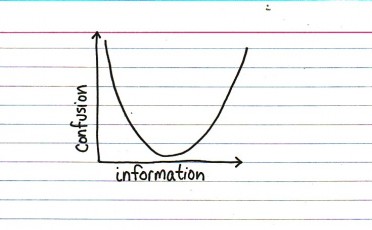Voice in the Academy
/I recently was asked by a relative over the Thanksgiving break about the aspects of working at a university that I found most surprising. What he was really asking was, "What weren't you prepared for?" As someone who had the good fortune to be involved in a graduate program with a considerable amount of transparency, I thought I was well prepared for the realities of being a tenure-track faculty member at a university. I will not go into details, but trust me when I say I was not nearly as prepared as I thought I was. During my four years at UVA, I taught between 1-3 courses each semester, and this doesn't count my teaching experience in my Master's program or my 8 years of teaching public school. This gave me an unbelievable head start in terms of learning the ropes of course planning, teaching and dealing with students. I had written several syllabi from scratch, crafted many, many projects and tests, and heard just about every excuse under the sun from students. Even so, I had a ton to learn this semester as I taught two courses for the first time in a new university.
I left class last night with a sinking feeling that I had failed as a teacher this semester, and I was obsessed with the fact that two of my biggest projects were just not planned out very well. As I skimmed blogs in my reader this morning, I ran across this post by Female Science Professor (yes, that is her Web identity). In general, her blog has quickly risen near the top of my favorites because of her insight, wisdom and humor. On more than one occasion, she has addressed topics similar to things I was struggling with, and today that was the case. I have no idea how my evaluations will turn out, but it doesn't really matter because I have always been harsher on myself than my students or colleagues. Anyway, the main points I took away from this post are that A) planning and teaching a new course for the first time is hard, and B) it takes 1-2 semesters to feel comfortable with it. I have already jotted down some changes I plan on making next semester, fearing that if I didn't do this I would get back in January and forget what didn't go so well.
This brings up my last point, which is that to succeed in any kind of teaching profession, a person has to be reflective. We constantly have to think about our craft and thoughtfully consider the feedback we get from other people. I gave a mid-semester evaluation in my classes, which helped me shift things around a little before the semester completely got away from me. I also plan on recruiting some colleagues to evaluate my course by sitting in on a couple of sessions, looking at my course materials and maybe even reading my course evaluations. This will require a high degree of humility if in fact my evaluations come back less than stellar, but I think this will be beneficial in the long run.
Similar to this, I recently got accepted to present at a conference. I was very excited to get this news, but I was shocked when I read the reviewers' comments. They absolutely tore my paper apart. It was borderline humiliating, but as I thought about it, I realized it was the best possible scenario. Had I gotten accepted with no real feedback, I might have tried to submit these findings to a journal and been devastated to find out they weren't as glorious as I originally thought (or was led to believe). But I got the best of both worlds: I got into the conference AND got blistering feedback. So, now I have a roadmap for how to make my paper even better.
My teaching is the same in this regard. Critical feedback might just be what I need to hear in order to grow and continually develop my craft.


